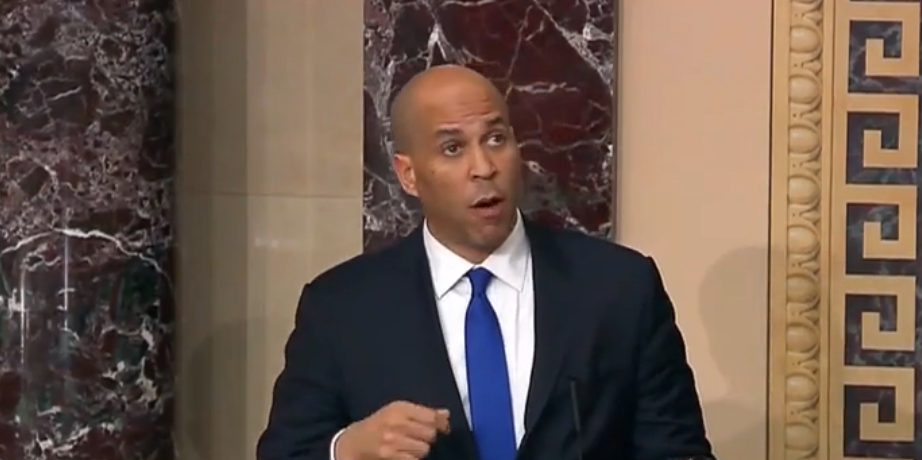CORONAVIRUS: Booker, Brown to File Legislation to Temporarily Ban Overdraft Fees

CORONAVIRUS: Booker, Brown to File Legislation to Temporarily Ban Overdraft Fees
Lawmakers pushing for measure to be included in third relief package
$35 overdraft fee can mean financial free fall for vulnerable individuals
WASHINGTON, D.C. – When the Senate floor opens at 5PM ET today, U.S. Senators Cory Booker (D-NJ) and Sherrod Brown (D-OH) will file legislation to temporarily ban exploitative bank overdraft fees for the duration of the Coronavirus public health emergency. Banks charge such fees to consumers when they make a purchase or pay a bill but don’t have sufficient funds in their account; typically the charge is $35.
Today’s bill builds on more comprehensive legislation the two Senators have co-authored to permanently restrict such fees.
“Millions of hardworking Americans have been thrown into financial insecurity because of this unprecedented global pandemic,” Booker said. “For these individuals, and those vulnerable before the outbreak, one $35 overdraft charge can lead to financial free fall. Overdraft fees generate enormous amounts of revenue for banks while customers often don’t even know they’ve opted into such charges. Worse, such fees fall on those least likely to be able to afford them. Our bill would end these unfair, exploitative practices during the Coronavirus emergency.”
“At the height of this pandemic, hardworking Americans should be protecting their health not worrying about big banks slapping them with fees for small overdraft amounts. This bill would allow them to keep money in their pockets when they need it most,” said Senator Brown.“We must do more to protect workers and American consumers from the economic fallout of this crisis.”
The proposed legislation would extend the following protections during the COVID-19 emergency:
- Prohibits financial institutions from assessing overdraft fee or nonsufficient fund fee for any transaction, including at ATMs, at the register, or involving checks or recurring payments.
- Prohibits financial institutions from reporting consumers’ use of overdraft coverage to a credit reporting agency.
- Allows financial institutions to extend a reasonable overdraft line of credit to consumers with insufficient funds.
Background on overdraft fees:
A 2014 CFPB report found that the majority of debit card overdraft fees are triggered by transactions of less than $25 and repaid within 3 days—the equivalent of a 17,000% annual percentage rate (APR). All told, the average accountholder with overdraft coverage pays $260 in overdraft and nonsufficient fund fees each year. These fees, which are disproportionately charged to consumers who are least able to afford them, have emerged as a major source of revenue for banks; in 2017 alone, three of the largest banks in the country collected over $5 billion in overdraft fees.
Evidence suggest consumers often don’t know when they’ve opted-in to overdraft services, plausibly because financial institutions market such services in a confusing and deceptive manner. A 2014 Pew study by Pew found that across all banks, more than half of the people who overdrew their checking accounts and paid a fee in the past year could not recall consenting to the overdraft service.
Senator Booker’s record on overdraft fees:
Booker has been a leader in the Senate on cracking down on exploitative bank overdraft fees. He first introduced comprehensive overdraft legislation in 2018 with Senator Brown. In 2017, he sent a letter to the CEOs of 13 banks – the top ten U.S. banks in overdraft revenue, as well as the U.S. banks with over $2 billion in assets that take in the most overdraft revenue per account – requesting more information on their practices as they relate to overdraft fees.
Based on the responses to that request, as well as relevant data from banks’ publicly available disclosures and quarterly financial filings, Booker’s office released a comprehensive report outlining how banks use overdraft fees in ways that often don’t serve the best interests of consumers.
In 2018, Booker sent a letter, signed by 14 other Senators, to the Consumer Financial Protection Bureau questioning its plan to no longer pursue regulatory action on overdraft fees, after it failed to mention action in its most recent regulatory agenda filing, even though it had been on the Bureau’s agenda for four years.





